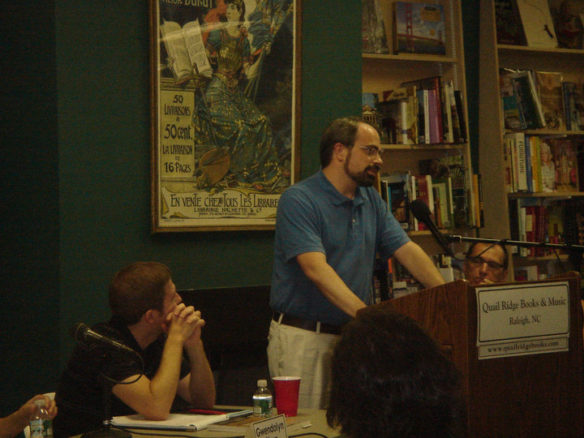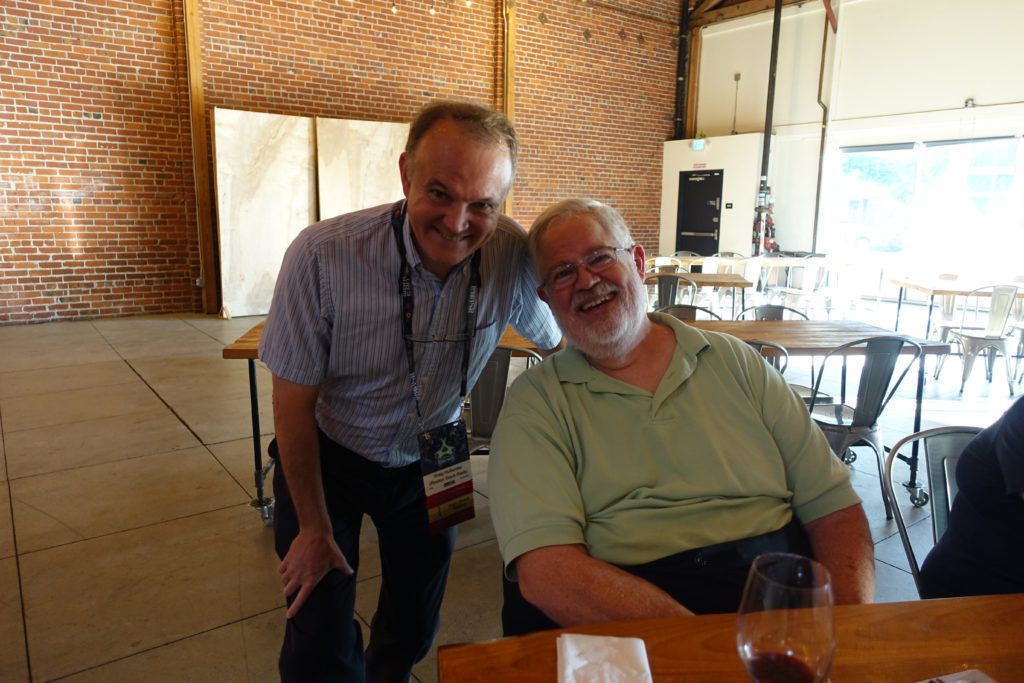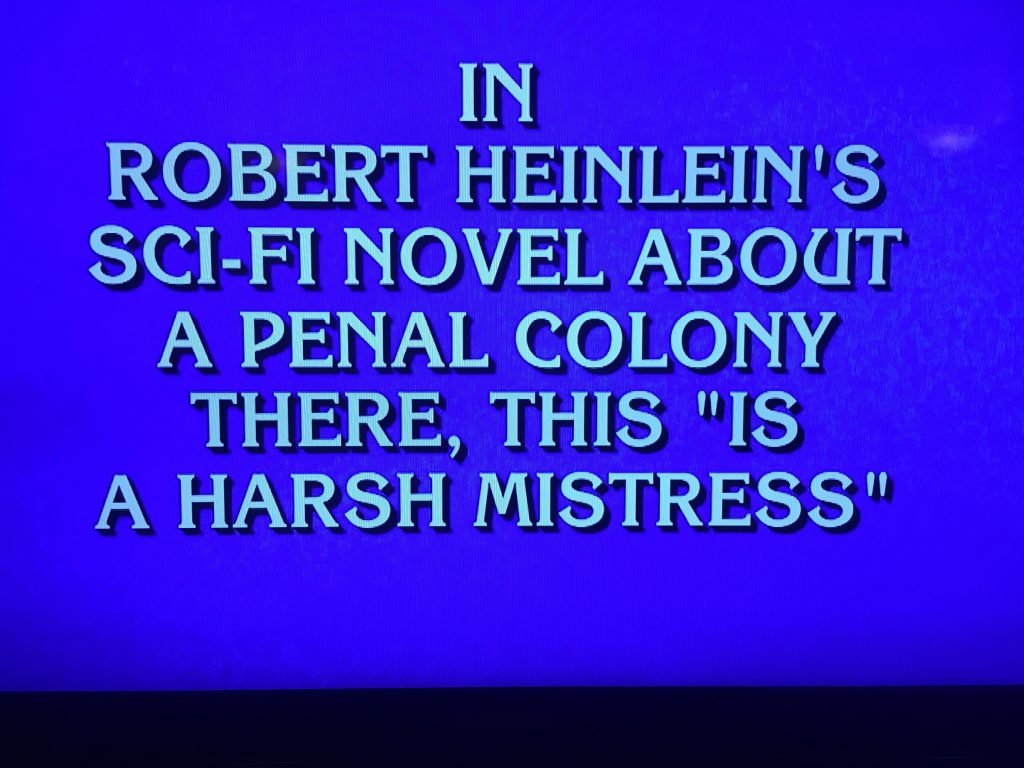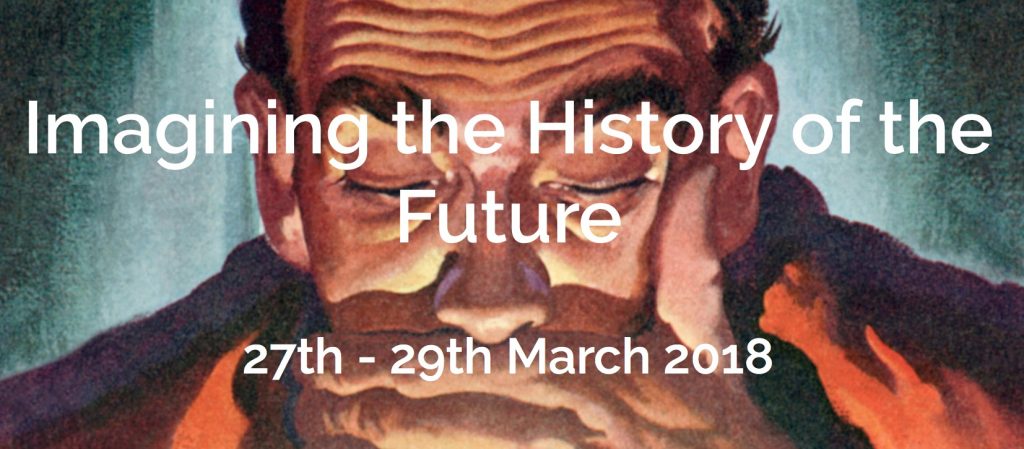(1) DECOPUNK CITATION. Language Log quotes Cat Valente today in “Decopunk and other quasicompositional compounds”.
Complex lexical items generally have analogical historico-semantic accretions similar to those in the X-punk domain. This includes phrases like red tide, solar energy, or historical fiction, as well as compounds like jumpsuit, ski lift, or break room. In the other direction, proper names are far from being semantically arbitrary in practice — to quote from a Decopunk work, Catherynne Valente’s Radiance…
(2) THE MATTER OF ENGLAND. One people, divided by a common tongue…
(3) PETER CAPALDI, VENTRILOQUIST. This caught my eye –
Fairygodfather.#DoctorWho #PeterCapaldi #puppetcapaldi #tinywonder #fairygodfather #makepuppetsmakefriends pic.twitter.com/TfDzr2FVsR
— valeriefromfaraway (@hellotinywonder) September 2, 2018
(4) AND THEN, AT DRAGON CON. Remember what they said about “Inconceivable”?
Peter Capaldi told someone in a Georgia hotel 'Bless your heart' and was then confused when they were offended. ????????????????
— Kay (@csodonogosh) September 2, 2018
(5) THE MEANING OF IT ALL. Bow Tie Writer asked an array of fans at Worldcon 76 to answer his question. I recognized Judy Bemis, Kevin Standlee, and Michelle Pincus among them.
Worldcon 2018 was held in San Jose August 15th – 20th. I went around and I asked people one simple question: What does Worldcon mean to you. This video is my homage to fandom, to internet friends, and to all the good people who come together to celebrate the things we love.
(6) RSR’S WORLDCON REPORT. At Rocket Stack Rank, Greg Hullender has an interesting set of “WorldCon 76 Takeaways” (including coverage of the Filer meetups).
…The audience for this panel had lots of people with many decades of experience with fanzines, so we had a lively but always cordial discussion. I was pleased to learn that even the folks who’d done fanzines back in the days of mimeograph machines all seemed to agree that online publications were definitely the future, particularly in terms of their ability to immediately involve fans via comments that don’t need to wait a month or more for publication. They worried that blogs in particular lack some of the feel of a fanzine, which has an arrangement of related stories. (At RSR, we’ll think about how a content-management system might capture that for an online publication.)
I was very pleased when someone in the audience told me that Rocket Stack Rank fit into a long tradition of “Review Fanzines,” of which Tangent is another surviving example. That made me feel a lot less like an impostor….
(7) TRUESDALE’S WORLDCON 76 PHOTO GALLERY. Dave Truesdale’s Worldcon 76 report for Tangent, “Photos from Worldcon 76, the 76th World Science Fiction Convention”, begins with coverage of Saturday’s alt-right demonstration, and ends by explaining what a raw deal he got when his 2016 Worldcon membership was revoked. In between there are a quite a few fine author photos. Here are the captions from one set —
Below Left: Lezli Robyn, helping out at the Galaxy’s Edge dealer’s table. Below Right: Galaxy’s Edge Publisher Shahid Mahmud. Both Lezli and Shahid are two of the most delightful people I’ve met in a long time. Shahid’s enthusiasm and love of SF is infectious. We talked for quite some time about this and that, and his intelligence and sense of humor shone through everything. I can’t imagine anyone not liking Shahid once they’ve met him.
(8) PROMETHEUS SPEECH. The Libertarian Futurist Society presented the Prometheus Awards at Worldcon 76. The author of the Prometheus Award-winning novel, Travis Corcoran, was unable to attend, so his acceptance speech for Powers of the Earth was read by Chris Hibbert. Its message is conveyed with classic libertarian subtlety.
…Since the first Worldcon in 1939 science fiction has been a libertarian territory under attack from authoritarians. Futurian Donald Wollheim was a communist, and argued that all of science fiction “should actively work for the realization of the . . . world-state as the only . . . justification for their activities”.
Wollheim failed with his takeover in 1939—he was physically removed from Worldcon—but he started a Gramscian long march through the institutions, and it worked. In the current year conventions, editors, and publishing houses are all cordy-cepted. The sociopaths have pushed the geeks out and have taken over the cultural territory.
“You made this? <pause> I made this.”
When the state tries to take your home, they come with guns, and you have to fight them with guns, if at all.
When a subculture tries to take your home, they come with snark and shame and entryism . . . and you fight them by making better art….
(9) DIRT FARMING. James Davis Nicoll has a long fannish exploration of “Science Fiction’s Trouble with Terraforming” at Tor.com.
Terraforming is, of course, the hypothesized art of converting an uninhabitable rock into a habitable world. Jack Williamson coined the term in his Seetee-related short story, “Collision Orbit”, published under the pen name Will Stewart in the July, 1942 issue of Astounding Magazine. While Williamson invokes non-existent super-science in order to make the task seem doable, he probably felt confident that terraforming would someday make sense. In the short run, we have seen humans shaping the Earth. In the long run—well, Earth was once an anoxic wasteland. Eons of life shaped it into a habitable planet. Williamson suspected that humans could imitate that process elsewhere…and make it happen in centuries rather than eons. Perhaps in even less time!
(10) AUGUSTULUS: With the help of a belated July issue, Jason has compiled a diminutive list of notable reading in Summation: August at Featured Futures:
This month has been doubly strange. Despite reading 42 stories of about 201K words from the August magazines, I’m in the unprecedented and unpleasant position of only being able to note one story (and that’s not even fully recommended). Counting a late July story and things for a couple of Tangent reviews, I read 59 stories of about 324K words this month and can at least add two recs and another honorable mention, all from the July/August Black Static, but only one of those is even speculative with the other two being straight horror.
(11) GIDDINGS OBIT. Sff writer and critic Joseph “Joe” Giddings passed away from ALS at the age of 45 on August 16. He was born April 6, 1973. His criticism appeared in Bull Spec and Tangent Online (among others). His fiction appeared in Mystic Signals and Dark Stars (more information in his entry at Internet Science Fiction Database.) Giddings blogged at “The Clockwork Pen”.
(12) TODAY’S MEMORIAL DAYS
[Compiled by Cat Eldridge. Who looked at the wrong ISFDB page today — but waste not, want not!]
- Died September 2, 1973. J.R.R. Tolkien. It’d be extremely silly of me to list what he’s done given what the group knows, so instead I’ll ask instead what’s your favourite work by him. Mine’s still The Hobbit, a book I delight in re-reading in the Autumn as I think of him as being of that season.
- Died September 2, 2000 – Curt Siodmak. He is known for his work in the horror and science fiction film genres, with such films as The Wolf Man and Donovan’s Brain with the latter being adapted from his novel of the same name. Siodmak is credited with creating the legend that only silver can kill a werewolf. He also wrote the screenplays for include Earth vs. the Flying Saucers, I Walked With a Zombie and The Beast With Five Fingers.
- Died September 2, 2013 – Frederik Pohl. Obviously needs no introduction here. His first published was a 1937 poem “Elegy to a Dead Satellite: Luna”. Noted work include the Heechee series whose first novel, Gateway, was the winner of the Campbell Memorial, Hugo, Locus SF, and Nebula Awards, Man Plus , and The Space Merchants with Cyril M. Kornbluth. I won’t say that any of the short story collections thrill me but Platinum Pohl is a decent collection.
(13) COMICS SECTION.
- Jedi office humor at Off the Mark.
- Dave Kellett is back with an anatomy of Frank Herbert at Sheldon Comics. (Is it true Dune was published by a company that printed car repair manuals?)
- Brewster Rockit finds out what happens when SETI finally succeeds.
- I, for one, do not welcome our new Facebook overlords — Pearls Before Swine.
(14) HOGWARTS EXPRESS. More “Back to Hogwarts” hype: “Eddie Redmayne and Jude Law were at Kings Cross for the Hogwarts Express”.
As every good Harry Potter fan knows, the Hogwarts Express departs from Kings Cross station, London, platform nine and three-quarters at 11.30am on September 1. This year Professor Dumbledore and Newt Scamander themselves, aka Hollywood stars Jude Law and Eddie Redmayne, were there to kick off the new year.
Name a more iconic duo… We’ll wait. #BackToHogwarts pic.twitter.com/dPAP3bGgDo
— Wizarding World (@wizardingworld) September 1, 2018
(15) AND WHILE WE’RE HOGWARTING. Gwynne Watkins, in the Yahoo! Entertainment story “A ‘Harry Potter’ neophyte watches all 8 movies for the first time: Here’s what happened” says that “my cred as a film nerd and a nerd nerd has been threatened by a shameful omission”– she had never seen a Harry Potter movie (not literally – she’d seen the first one in its initial theatrical release.) So she decided to watch them all over a 24-hour binge. Some notes are better than others. Is Harry Potter and the Order of the Phoenix really about the problems of standardized testing? On the other hand, she had an interesting response to this 20-years-after rewatch of the very first movie —
What surprised me most on my second viewing of Sorcerer’s Stone was how much I loved Emma Watson’s Hermione. The first time around, I remember thinking that her show-offish, know-it-all nature was borderline unbearable. Now I love how unapologetic she is about her intelligence, how confidently she wields it in a room full of boys. (Seriously, where are the Hogwarts girls? Hermione needs some female friends!) Maybe as a girl who grew up downplaying her intelligence, Hermione made me uncomfortable in some primal, fourth-grade part of my subconscious. If that’s true, it only makes me more grateful that my daughter will grow up in a post-Hermione world.
(16) THE HORROR. From Agouti (@bitterkarella) comes news of the horror genre’s Midnight Society of writers. Dean Koontz, HP Lovecraft, Clive Barker, Edward Lee, Stephen King, and Edgar Allen Poe trade inspirations for their next novels. The thread starts here.
John Bellairs: Submitted for the approval of the Midnight Society, I call this the Tale of the Spooky Robot
King: sure sounds fun
Bellairs: so this guy invents a robot
Koontz: i like robots C:
Bellairs it needs to eat human eyes to work
King: wait what— Lesbian Death Bed: The Bed that Eats Pussy (@bitterkarella) August 20, 2018
(17) NED KELLY AWARDS. My internet wanderings brought me the results of the Australian Crime Writers Association’s 2018 Ned Kelly Awards, and far be it from me to turn down literary award news…
2018 Ned Kelly Awards
Best Crime
- Crossing the Lines by Sulari Gentill
Best First Crime
- The Dark Lake by Sarah Bailey
Best True Crime
- Unmaking A Murder: The Mysterious Death of Anna Jane Cheney by Graham Archer
(18) NGAIO MARSH. Likewise, I learned the 2018 Ngaio Marsh Awards for the “very best in Kiwi Crime” were recently presented in New Zealand.
Best Crime Novel
- Marlborough Man by Alan Carter (Fremantle Press)
Best First Novel
- All Our Secrets by Jennifer Lane (Rosa Mira Books)
(19) RENAME THAT TUNE. The IAU will probably decide that Hubble needs to share credit – The Conversation has the story: “Game-changing resolution: whose name on the laws of physics for an expanding universe?”
Astronomers are engaged in a lively debate over plans to rename one of the laws of physics.
It emerged overnight at the 30th Meeting of the International Astronomical Union (IAU), in Vienna, where members of the general assembly considered a resolution on amending the name of the Hubble Law to the Hubble-Lemaître Law.
The resolution aims to credit the work of the Belgian astronomer Georges Lemaître and his contribution – along with the American astronomer Edwin Hubble – to our understanding of the expansion of the universe.
While most (but not all) members at the meeting were in favour of the resolution, a decision allowed all members of the International Astronomical Union a chance to vote. Subsequently, voting was downgraded to a straw vote and the resolution will formally be voted on by an electronic vote at a later date.
(20) BEWARE BENNU. The NASA mission to visit and sample Bennu — a “potentially hazardous asteroid” — has entered a new phase (“NASA’s OSIRIS-REx Begins Asteroid Operations Campaign”). The spacecraft has begun approach operations:
After an almost two-year journey, NASA’s asteroid sampling spacecraft, OSIRIS-REx, caught its first glimpse of asteroid Bennu last week and began the final approach toward its target. Kicking off the mission’s asteroid operations campaign on Aug. 17, the spacecraft’s PolyCam camera obtained the image from a distance of 1.4 million miles (2.2 million km).
…The spacecraft has traveled approximately 1.1 billion miles (1.8 billion km) since its Sept. 8, 2016, launch and is scheduled to arrive at Bennu on Dec. 3.
…During the mission’s approach phase, OSIRIS-REx will:
- regularly observe the area around the asteroid to search for dust plumes and natural satellites, and study Bennu’s light and spectral properties;
- execute a series of four asteroid approach maneuvers, beginning on Oct. 1, slowing the spacecraft to match Bennu’s orbit around the Sun;
- jettison the protective cover of the spacecraft’s sampling arm in mid-October and subsequently extend and image the arm for the first time in flight; and
- use OCAMS to reveal the asteroid’s overall shape in late-October and begin detecting Bennu’s surface features in mid-November.
Ultimately, the craft will map the asteroid, then perform a sampling “touch-and-go” maneuver. The sample will be dropped off at Earth in a Sample Return Capsule in September 2023. OSIRIS-REx itself will end up in a solar orbit.
(21) LOX WARNING. It used to be a thing — and may still be in some fannish circles — to whip up fresh ice cream at room parties using liquid nitrogen. The US Food and Drug administration has issued a safety alert about the danger of drinks and food prepared with LN2 at the point of sale (CNN: “FDA issues warning about liquid nitrogen on food”):
“The FDA has become aware of severe — and in some cases, life-threatening — injuries, such as damage to skin and internal organs caused by liquid nitrogen still present in the food or drink,” the FDA said in issuing its safety alert. “Injuries have occurred from handling or eating products prepared by adding liquid nitrogen immediately before consumption, even after the liquid nitrogen has fully evaporated due to the extremely low temperature of the food.”
In its warning, the FDA said inhaling the vapor “released by a food or drink prepared by adding liquid nitrogen immediately before consumption may also cause breathing difficulty, especially among individuals with asthma.”
…The FDA did not say how many reports of injuries it has received or provide details on life-threatening cases.
(22) MOON WALKER. The BBC’s Nicholas Barber gives “Five Stars for First Man”
The life story of Neil Armstrong, the first person to walk on the moon, is so full of astounding courage, tragedy and triumph that it is just begging for an old-school Hollywood biopic, with all the inspiring speeches, swelling orchestras and grand themes that the genre entails. First Man is not that biopic.
Directed by Damien Chazelle (La La Land) and scripted by Josh Singer (Spotlight), the film is an understated, economical drama which, like a rocket that has to escape from the Earth’s gravity, jettisons absolutely everything it doesn’t need. Dialogue is kept to a minimum. Exposition is edited out. Extraneous characters are stripped away to the point that you see almost nothing of Buzz Aldrin (Corey Stoll), who moonwalked with Armstrong, and even less of Mike Collins (Lukas Haas), who piloted the orbiting craft. You don’t hear about Armstrong’s Korean War heroics, for that matter, and the space-race politics that were behind Nasa’s Apollo programme remain in the background. And yet, as restrained as First Man is, this riveting, exhaustively researched and utterly believable film manages to shake you, take your breath away and even pull a few tears from your eyes.
(23) SCREEN PLAY. “Movie Madness: Why Chinese cinemas are empty but full”. Speculators think buying seats (to fake up hits, to push stock prices) is cheaper than making good movies.
For a country which will soon assume the mantle of the world’s largest cinema audience, China comes out with a surprising number of big budget B-grade flops.
Some blame this on censorship, others on a lack of creativity but there are also those who see a more sinister force at work, which has nothing to do with film-making.
It also has nothing to do with selling tickets: at least not real ones.
Some investors are apparently financially backing movies with the sole goal of boosting their stock price that can shift on the perception of a movie’s performance, irrespective of its true popularity.
(24) VIDEO OF THE DAY. “The Bridge Tongues” on YouTube is a look back at our times from the 25th century, where no one argues with each other and everyone lives in their own digital bubble.
[Thanks to JJ, Mark Hepworth, John King Tarpinian, Samuel Montgomery-Blinn, Chip Hitchcock, Cat Eldridge, Mike Kennedy, Gregory Benford, Martin Morse Wooster, Bill Burns, Dann, James Davis Nicoll, Carl Slaughter, and Andrew Porter for some of these stories. Title credit goes to File 770 contributing editor of the day Daniel Dern.]















